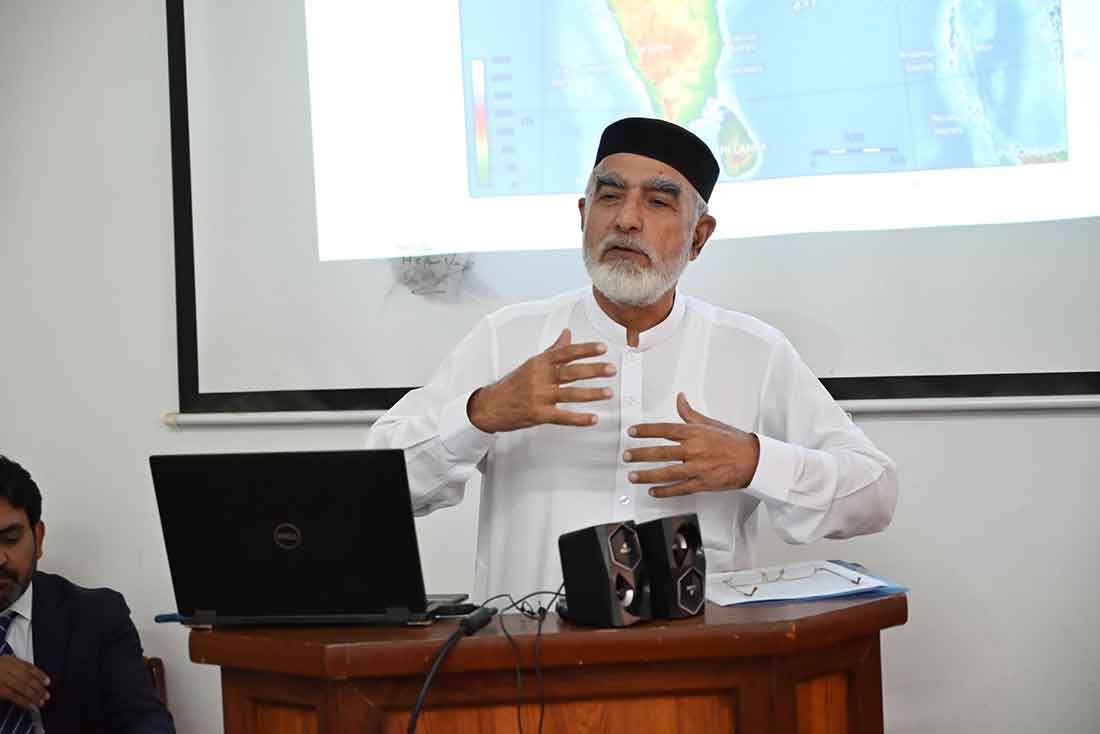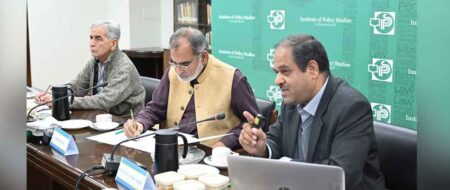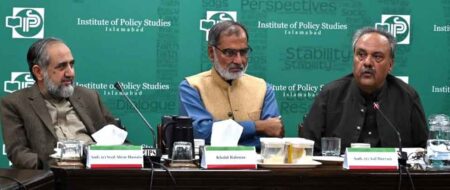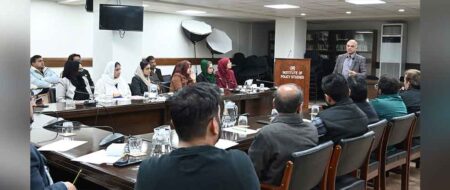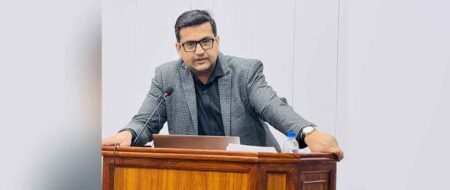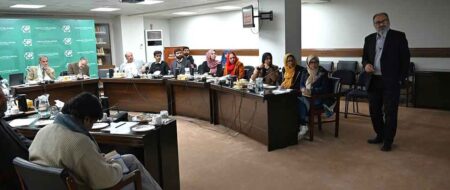‘Pakistan is a Natural Geopolitical State’ – Owais Ahmed Ghani’s Lecture at NIPS-QAU
The Indus River region, which now constitutes Pakistan, has been a fragmented region for around 91% of the 2600-year recorded history. The region was politically united with other geopolitical zones of South Asia for only about 236 years—roughly 9% of its documented history. Thus, the historical context of the Indus River region aligns with the rationale behind Pakistan’s formation as a distinct political entity, reinforcing its status as a ‘Natural Geopolitical State.’
This was noted by Owais Ahmed Ghani, former governor KP and member of the Institute of Policy Studies (IPS) National Advisory Council, during his lecture on “Pakistan: A Natural Geopolitical State” held at the National Institute of Pakistan Studies (NIPS), Quaid-i-Azam University, Islamabad, in collaboration with IPS on October 30, 2024.
The lecture was joined by Khalid Rahman, chairman IPS, Dr. Muhammad Hanif Khalil, associate professor and acting director NIPS, and Dr Saeed Amed Rid, assistant professor, NIPS. The lecture was attended by undergraduate and postgraduate students of the department.
In his lecture, Owais Ahmed Ghani presented a comprehensive historical analysis that positioned the Indus River region as a distinct political entity throughout history. He highlighted that the region’s unique geopolitical and cultural identity has consistently set it apart from the rest of the subcontinent. Drawing on 2,600 years of history, Ghani demonstrated through maps that for the majority of this period, the Indus River region has functioned independently of the Ganga-Jumna region, with a distinct social, cultural, and political character.
He referenced his study on the same topic and highlighted that, since 600 BC, the subcontinent has experienced political unification for only 236 years, under Maurya, the Tughlaq, Mughal, and the British Empire, the latter three being the foreign rulers. Meanwhile, the Indus River region has maintained its distinctiveness, significantly shaped by influences from Persia, Central Asia, and the Muslim world, while the Ganga-Jumna region remained primarily Vedic-Hindu.
Drawing from this, he underscored that Pakistan is the modern political manifestation of the Indus River region and can be rightfully considered a “Natural State.” This socio-economic entity stretches from the Karakoram to the Arabian Sea and is bound together by a distinct cultural identity, further reinforced by Pakistan’s founding ideology—the Two-Nation Ideology. This ideology forms the basis of an inclusive Pakistani nationhood, bringing together diverse ethnic communities under a shared Muslim identity and value system.
Ghani also underscored the strategic significance of the Hindu Kush Mountain range as a historical geopolitical fault line, noting that it has served as a gateway for invasions into the subcontinent from Central Asia and Persia throughout history. The Indus region, particularly its areas adjoining the Hindu Kush, has played a crucial role as the “Gatekeeper of the Hindu Kush,” bearing the brunt of initial invasions.
He emphasized that Pakistan has continued to fulfill this role in modern times, countering foreign interventions, notably by the Soviet Union and the United States during conflicts in Afghanistan. As global dynamics shift, with an emerging US-China superpower rivalry, Ghani stressed the need for Pakistan to remain vigilant and adapt to evolving security challenges along the Hindu-Kush fault line.
In his concluding remarks, Khalid Rahman emphasized the critical role of national resilience and self-belief, stating that a nation’s true strength lies in its collective willpower. He noted that adversaries often seek to weaken Pakistan by fostering a sense of vulnerability among its people. This perception, combined with confirmation bias, can amplify negative narratives that undermine the nation’s identity and morale.
In an era dominated by social media, the rapid spread of information—often without informed and critical engagement—further strengthens these echoes. He encouraged the students to harness social media as a powerful tool for national cohesion and constructive discourse, rather than allowing it to become a liability.
Dr Saeed Rid thanked the speakers and participants. The lecture concluded with an interactive question and answer session by students.
